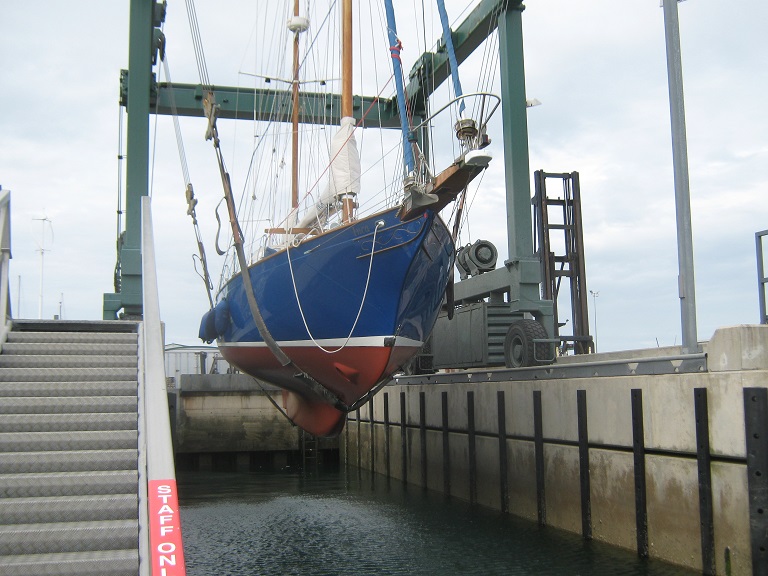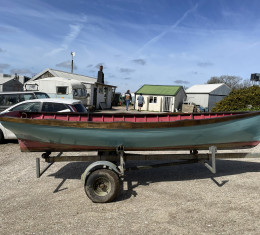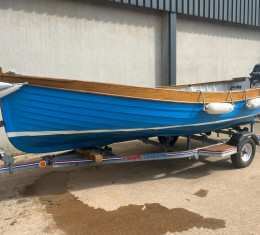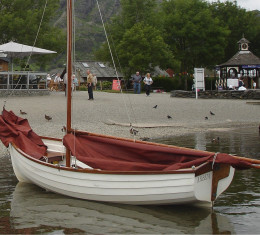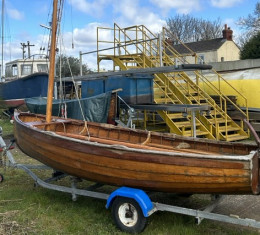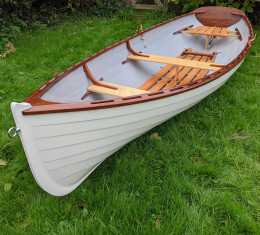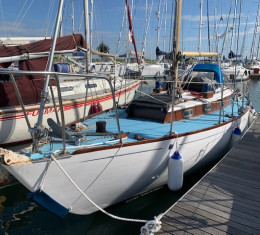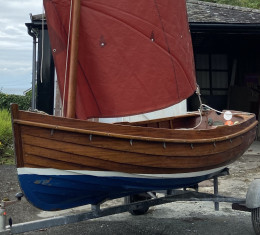
Charter Sailing on a Pilot Cutter
Sailing is one of the great escapist past times and allows people to dream of a different life which is as far removed from their day to day monotony as it is possible to be. Some people in their younger years step into the world of super yachts where they polish brass on a floating hotel, and some people simply throw in the towel later in life, buy a yacht and go off cruising. These options however aren’t for everyone as most of us are too old to become super yacht deck crew and not all of us want to sail over the horizon and leave friends and family behind.
There is however another option which has just reared its head on the classic boat market, an option which will allow the new owners of this fine yacht to own a proper boat, a boat to be proud of, to sail as much as they like but not to have the ongoing running costs and organisation of a big yacht, but how is this possible?
The answer is Amelie Rose, a 44′ Pilot Cutter built by Luke Powell in 2009 for the present owners and operated ever since as a hugely successful charter business.
Running a charter boat is not for everyone and the skipper needs to be not only a highly competent sailor but also very confident with handling a gaff rigged boat. He or she has to be a chef, a leader, a teacher and above all a really nice person who the clients feel comfortable with and happy to be around. This may not be everyones cup of tea, but the new owner of the boat doesn’t necessarily have to be at the helm on a week by week basis, there are some good people around with a lot of experience of running and handling gaff rigged charter boats so it would be possible to place a full time skipper aboard the boat to manage her week by week, which would have the added benefit of allowing the new owners to sail with their own skipper whenever they use the boat.
Purchasing a yacht and placing a skipper aboard her is only a small part of a successful charter operation, the difficult area is to ensure the business is managed and run correctly, the marketing is carried out and the boat is kept full. The benefit of taking on a boat such as Amelie Rose is that, with a little extra negotiation, she comes with the complete business including the web site, data base and good will of a very well known and respected name. The boat is booking up fast for the 2017 season so if new owners stepped in this winter they will have a flying start into their first year of trading with a boat that is largely full for the summer with an itinerary and logistics all planned out.
An opportunity like this is not for everyone, but there are many people out there who possibly have not even considered the idea of owning a charter business for whom this solution could work very well. It is difficult to justify any yacht purchase as an investment, however this is as close as you will come and would enable the busy professional family to own and run a superb yacht without the worry of maintenance and running costs.
It would also be possible to hand over the management of the yacht entirely which would obviously suck away at the profits but would allow the new owner to not worry at all about the day to day logistics. Here at Wooden Ships we have the skills, contacts and knowledge to manage a boat such as this and there is a specialist company based in Cornwall who could successfully market the boat and keep her full throughout the season.
The possibility of breaking away from your day in day out routine may not be as far away as you think and owning a traditional sailing vessel such as Amelie Rose doesn’t have to be on the conventional terms, why not invest a lump sum of cash into a project like this and start to enjoy the high seas in a real boat!

